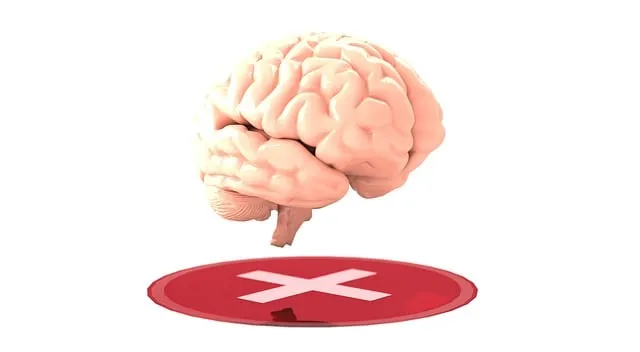In today's fast-paced world, prioritizing mental wellness is crucial. While professional help from organizations like Kaiser Permanente, with their accessible mental health hotline in Westminster, remains vital, self-assessment tools empower individuals to take an active role in their mental health journey. These tools offer convenient ways to gauge emotional well-being, monitor stress, boost confidence, and navigate challenges resiliently. By providing insights into thoughts, feelings, and behaviors, they enable informed decisions about mental health, complementing traditional therapy. Kaiser Permanente promotes preventive measures like mindfulness, empowering community members to manage their mental health effectively. Effective self-assessment tools require a structured approach, including defining purposes, understanding user needs, conducting in-depth research, incorporating validated scales, and integrating features for self-reflection and goal-setting. Integrating these tools into services improves patient care and equips individuals with coping skills to manage their mental health between professional interactions. Success is measured beyond self-reporting by incorporating physiological markers and qualitative feedback, fostering continuous improvement through iterative development cycles.
In today’s fast-paced world, prioritizing mental wellness is paramount. This article explores the development of self-assessment tools designed to enhance mental health awareness, focusing on the role of organizations like Kaiser Permanente in Westminster. We delve into the understanding behind these tools, their step-by-step creation process, and integration strategies within existing services. Additionally, we discuss measuring success and fostering continuous improvement for personal growth, highlighting the impact of such initiatives. For more information, contact the Kaiser Permanente mental health phone number Westminster.
- Understanding the Need for Self-Assessment Tools in Mental Health
- The Role of Kaiser Permanente in Mental Wellness Initiatives
- Developing Effective Assessment Tools: A Step-by-Step Process
- Integrating Self-Assessments into Existing Mental Health Services
- Measuring Success and Continuous Improvement for Personal Growth
Understanding the Need for Self-Assessment Tools in Mental Health

In today’s fast-paced world, prioritizing mental wellness is more important than ever. While professional help from organizations like Kaiser Permanente mental health phone number Westminster remains crucial, self-assessment tools play a vital role in empowering individuals to take an active role in their mental health journey. These tools offer a convenient and accessible way for folks to gauge their emotional well-being and identify areas that may need attention.
Self-assessment tools, such as those incorporated into the Mental Wellness Podcast Series Production, can help individuals monitor their stress levels, boost confidence, and navigate life’s challenges with greater resilience. By providing insights into one’s thoughts, feelings, and behaviors, these tools enable people to make informed decisions about their mental health, fostering a proactive approach that complements traditional therapy and support services.
The Role of Kaiser Permanente in Mental Wellness Initiatives

Kaiser Permanente, a renowned healthcare organization, plays a pivotal role in advancing mental wellness initiatives across various communities. Their commitment to holistic well-being is evident through the array of resources and support systems they offer. One notable aspect is their focus on accessible care, including a dedicated mental health phone line in Westminster, ensuring individuals can readily connect with professionals for guidance and assistance.
This forward-thinking approach extends to promoting self-care practices like mindfulness meditation and inner strength development as preventive measures against common mental health challenges such as depression. By integrating these strategies into their wellness programs, Kaiser Permanente empowers individuals to take proactive steps towards maintaining a healthy mind.
Developing Effective Assessment Tools: A Step-by-Step Process

Developing effective mental wellness self-assessment tools involves a structured process that ensures accuracy and usability. The first step is to define the purpose and target audience; this could be for individual use or as part of a larger program within organizations like Kaiser Permanente, which offers mental health services through its phone lines, such as the one in Westminster. Understanding the specific needs and challenges of your audience guides tool design.
Subsequently, conduct thorough research to identify relevant factors affecting mental wellness. This stage involves reviewing existing literature, consulting with mental health professionals, and possibly integrating risk management planning concepts for comprehensive assessment. Incorporate validated scales and measures where possible to ensure reliability and validity. For instance, the Mental Health Awareness initiative highlights the importance of early intervention and accurate assessment tools. Additionally, consider including Mental Wellness Journaling Exercise Guidance as a complementary feature to promote self-reflection and personal insights.
Integrating Self-Assessments into Existing Mental Health Services

Integrating self-assessment tools into existing mental health services can significantly enhance patient care and outcomes, particularly in communities like Westminster where access to resources is a priority. Organizations like Kaiser Permanente have recognized this need, developing user-friendly phone-based assessments that provide immediate guidance and support. These tools serve as valuable entry points for individuals seeking help, offering initial insights into their mental wellness and directing them towards appropriate resources or professional care.
By incorporating self-assessments, mental health services can foster a sense of public awareness and encourage emotional well-being promotion techniques. This proactive approach not only caters to those actively seeking help but also empowers individuals with coping skills development, enabling them to manage their mental health effectively between professional interactions.
Measuring Success and Continuous Improvement for Personal Growth

Measuring success is a crucial aspect of developing effective self-assessment tools for mental wellness. Incorporating metrics that go beyond simple self-reporting allows for a more nuanced understanding of an individual’s progress. This can include tracking changes in physiological markers, such as heart rate variability and sleep patterns, which are indicators of stress management and emotional healing processes. By combining quantitative data with qualitative feedback from users, developers can create a comprehensive picture of mental wellness improvement.
Continuous improvement is fostered through iterative development cycles that incorporate user feedback. Tools should be designed to adapt and evolve based on the evolving needs of individuals seeking support. For instance, integrating features that encourage regular reflection and goal-setting can empower users in their journey towards personal growth. Resources like the Kaiser Permanente mental health phone number in Westminster can serve as valuable touchpoints for further guidance and support, ensuring a holistic approach to emotional well-being.
The development of mental wellness self-assessment tools is a crucial step towards empowering individuals to take charge of their mental health. As highlighted by Kaiser Permanente’s initiatives, these tools can play a significant role in early detection and intervention. By following a structured process, as outlined in this article, healthcare providers and organizations like Kaiser Permanente, accessible through the Kaiser Permanente mental health phone number Westminster, can create effective assessments that facilitate personal growth and improve access to care. Continuous improvement, based on measured outcomes, ensures these tools remain relevant and impactful in supporting mental wellness initiatives.






